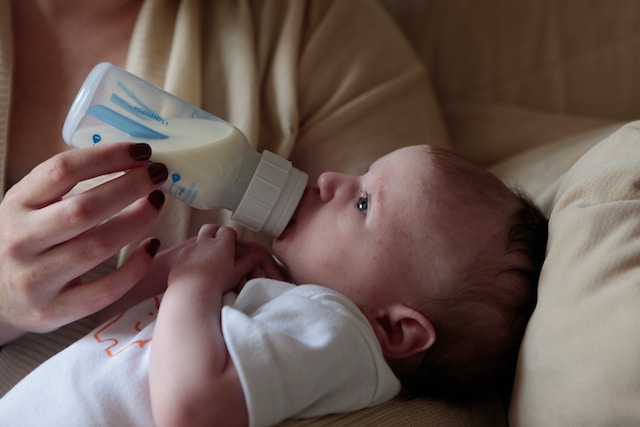Millions of Americans rely on formula milk because exclusive breastfeeding is not a choice, no matter how much they want to embrace it. Lifestyle, culture, and financial factors affect parenting styles in the US because women need to rejoin the workforce soon after giving birth. A recent study raised concern by validating the lack of evidence supporting the health claims of most baby formula brands.
Published in the BMJ in February 2023, the study suggests that most nutritional claims do not have scientific references. Even the ones given by brands are often weak and biased. With this update, parents should think twice before switching to formula milk or picking a product off the shelf. The study spanned 15 countries and included 814 infant formula products.
Researchers assessed product marketing across countries like the US, the UK, Australia, India, Canada, Germany, Italy, Japan, Pakistan, Russia, Saudi Arabia, Nigeria, Norway, South Africa, and Spain. The problem of false claims was a global one, risking consumers across the globe.
The “Lofty” Claims Made by Baby Formula Brands
Health claims are a widely-used marketing tactic for consumer products, and baby formula is no exception. Products included in the BMJ study made two claims each on average. The most common ones were:
- Supports growth and development
- Helps the development of the eyes/brain/nervous system
- Strengthens the immune system
Besides the claims related to the product itself, some were linked to the constituent ingredients. Lofty as they sound, most of these assertions are misleading. The real concern is that the lack of accurate and reliable information can cause harm to the end consumers, in this case, newborns and infants with inherently fragile health.
The Case of Cow-Milk-Based Formula and NEC Risk
While highlighting the inaccurate claims by baby formula brands, it is essential to talk about the recent outcry regarding the risk of necrotizing enterocolitis (NEC) for premature babies being fed cow-milk-based formula. The toxic baby formula NEC lawsuit enables parents to file a claim against brands like Similac and Enfamil, seeking compensation for the pain and suffering inflicted on their little ones.
According to TorHoerman Law, manufacturers can be held liable for concealing critical information regarding the risks caused by the products from consumers. The estimated settlement amounts for these lawsuits may be $5,000-$500,000. The sheer value of the claim shows the gravity of the situation for parents seeking justice for their newborns.
NEC isn’t the only risk that babies face due to these products. Abbott, the manufacturer of Similac, has been under scrutiny for potential bacteria contamination and quality control issues. The company even issued a product recall after cases of severe sickness and death caused by bacterial infections after consuming the product manufactured at the Sturgis plant.
The Role of The Food and Drug Administration
Baby formulas are considered foods instead of pharmaceuticals, so the U.S. Food and Drug Administration need not approve these products before they reach the markets. At the same time, the agency requires all formulas sold in the US to meet federal nutrient requirements. Additionally, manufacturers must notify the FDA before launching a new formula.
However, the labeling rules are non-binding, indicating that manufacturers can use discretion to follow the recommendations while marketing their products. Besides labeling recommendations, the discretionary factor applies to health claims about ingredients and the potential for specific health conditions.
Undoubtedly, there is a need for greater regulation to ensure that manufacturers share valid claims with scientific evidence. The aim is to safeguard the health of the most vulnerable population.
Industry Ties in Most Studies
When researchers dug deeper for data and studies to support claims, they found that only 56% of the findings were backed by clinical trials. Further, 14% of citations to clinical trials were registered. A whopping 90% of claims citing registered clinical trials came with a high risk of bias. Notably, most of the authors conducting clinical trials had industry ties.
With these statistics, it becomes clear that the existing regulations for baby formula products and brands fail to limit the use of unfounded claims in the baby formula industry. The FDA should take tangible steps to ensure better control and coordination for the safety of consumers.
The Way Forward
While all parents understand the value of breastfeeding, many of them fall short on this front. According to CDC’s Breastfeeding Report Card, 2022, 83.2% of infants started out getting some breast milk, and 78.6% were receiving any breast milk at one month. The number of babies receiving any breast milk dropped to 55.8% at six months. Further, only 24.9% of babies were breastfed exclusively at this age.
Considering these numbers, the government needs to regulate the industry to ensure the safety of babies. Besides quality regulations, rules should be implemented to curb false claims while marketing these products. Manufacturers should be responsible for providing factual and reliable information to consumers so that they can confidently use these products.

